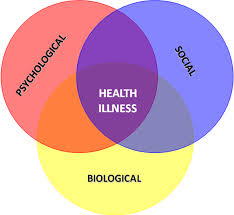Michael Mulholland has been pursuing post-graduate studies in chronic pain management at the University of Sydney. See what current research has to offer on the subject of pain.
Most patients present at Vital Lifestyle Centre seeking relief from pain. Others seek to improve function in order to perform daily activities, work or sports more effectively. No one seems to like or want pain because by definition it is an unpleasant experience that has fascinated scientists and philosophers since Aristotle. One of the big questions has been; “is pain a neurological process or is it an emotional experience”. Aristotle in ancient Greece (284-322 BC) considered pain to be a passion of the soul and felt in the heart. He and Plato believed that the relief of pain was followed by pleasure. Galen, the great Roman physician (130-c.200 AD) viewed pain as a sensation, centred in the brain.
The Indian Vedas and Upanishads saw pain as an emotional experience resulting from frustrations of desire. Traditional Chinese Medicine considered pain as a manifestation of imbalance in yin and yang energy or vital life-forces.
In the 1600’s Descartes described humans as being composed of body and soul and while the soul (mind) experienced pain, he described bodily mechanisms that created it. This points to the fundamental Western view that body and mind are separate entities. This reductionist view has plagued the bio-medical approach to pain for centuries. We now know that they are NOT separate.
As recently as 1965 Wall and Melzack published the Gate Control Theory of pain which attempted to explain the interaction of neurophysiology with psychological processes. In other words:
NEUROLOGICAL SENSATION + EMOTIONAL EXPERIENCE =PAIN. So in fact it is both combined, not one or the other.
The scientific advancement in understanding of pain has really progressed since the 1990’s. Bonica and Loeser have made considerable contributions as have Eccleston, Crombez and Merskey. The International Association for the Study of Pain (IASP) 1979 definition of pain is; ”An unpleasant sensory and emotional experience associated with actual or potential tissue damage or described in terms of such damage”. The Author, Merskey, added that pain is always subjective, it is a sensation which is unpleasant, therefore it is also an emotional experience.
Traditional medical systems like Traditional Chinese Medicine, Ayurveda (India) and Osteopathy places an emphasis on an holistic approach to treatment. This refers to a consideration of “body, mind and spirit” when treating a patient. In 1980 Engel coined the term “bio-psycho-social”, which is a more scientific and contemporary way of saying holistic, which is becoming more widely adopted as the most effective approach to pain management. That is why we treat the whole person not just the part that hurts.
Stay tuned for further blogs on pain!
Melzack R & Wall PD (1965)Pain Mechanisms: A New Theory. Science, 150, 971-979
Bonica, JJ & Loeser JD (1990) History of pain concepts and therapies in The Management of Pain. Philadelphia
Eccleston C & Cronbez G (1999) Pain demands attention: a cognitive-affective model of the interruptive function of pain. Psychological Bulletin., 125, 356-366






